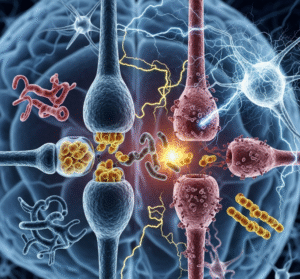Overview
Urinary Tract Infections (UTIs) during pregnancy are common and potentially serious infections that affect the urinary system, including the bladder (cystitis), urethra, or kidneys (pyelonephritis). Pregnant women are more susceptible to UTIs due to hormonal and anatomical changes. Early diagnosis and proper treatment are essential to avoid complications for both mother and baby.
What is UTI During Pregnancy
UTI During Pregnancy refers to a bacterial infection that occurs anywhere in the urinary tract of a pregnant woman. It may be asymptomatic (asymptomatic bacteriuria) or symptomatic, involving discomfort and potential systemic effects. If left untreated, it can progress to a kidney infection (pyelonephritis), which can lead to preterm labor, low birth weight, or maternal sepsis. UTIs are most common during the second trimester and are a major reason for prenatal urine screening.
Symptoms
Symptoms of a symptomatic UTI in pregnancy include:
- Burning sensation while urinating
- Frequent urge to urinate with little output
- Cloudy or foul-smelling urine
- Lower abdominal or pelvic pain
- Hematuria (blood in the urine)
- Fever, chills, or nausea (may suggest a kidney infection)
- Flank or lower back pain
Asymptomatic bacteriuria shows no visible symptoms, making routine prenatal screening critical.
Causes
UTIs during pregnancy are typically caused by bacteria, most commonly Escherichia coli (E. coli), which normally reside in the gastrointestinal tract. Several physiological changes increase susceptibility:
- Hormonal changes (progesterone relaxes urinary tract muscles)
- Uterine enlargement compresses the bladder and ureters
- Urinary stasis and incomplete bladder emptying
- Decreased immunity during pregnancy
Risk Factors
- History of UTIs before or during pregnancy
- First pregnancy
- Diabetes or gestational diabetes
- Sickle cell disease or trait
- Structural abnormalities of the urinary tract
- Urinary catheterization
- Multiple pregnancies (twins or more)
- Sexual activity during pregnancy
Complications
If untreated, a UTI during pregnancy can cause serious complications:
- Pyelonephritis (kidney infection)
- Preterm labor and premature birth
- Low birth weight baby
- Preeclampsia-like symptoms
- Maternal sepsis
- Increased risk of recurrent infections
- Amniotic fluid infection or rupture of membranes
Prevention
Preventing UTIs during pregnancy is important for maternal and fetal health:
- Drink plenty of water to flush out bacteria
- Urinate frequently and avoid holding urine
- Wipe front to back after urination or bowel movement
- Practice good genital hygiene
- Urinate after sexual intercourse
- Avoid irritating feminine hygiene products
- Attend regular prenatal checkups with routine urine tests
- Manage underlying conditions like diabetes
Treatment Options in Korea
South Korea provides comprehensive and pregnancy-safe care for UTIs, combining precise diagnosis with effective and safe antibiotics.
- Diagnosis:
- Urinalysis and urine culture during prenatal visits
- Ultrasound imaging if kidney involvement is suspected
- Treatment:
- Pregnancy-safe antibiotics, such as amoxicillin, cephalexin, or nitrofurantoin (avoiding drugs like tetracyclines or fluoroquinolones)
- Hospitalization and IV antibiotics for pyelonephritis or severe infections
- Follow-up urine cultures to ensure eradication
- Prophylactic antibiotics in recurrent cases
- Supportive care:
- Hydration therapy
- Monitoring for uterine contractions or fetal distress
- Nutritional and lifestyle guidance
Korean obstetric care providers emphasize safe and targeted antibiotic use, frequent monitoring, and preventive strategies, ensuring both mother and baby remain healthy throughout pregnancy.













